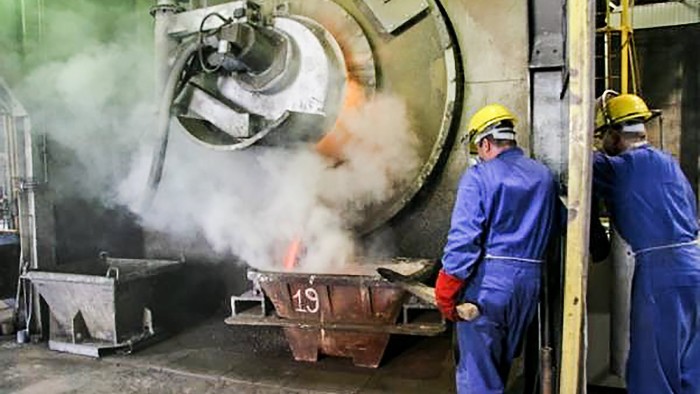Entrepreneurs target greener path to success

Roula Khalaf, Editor of the FT, selects her favourite stories in this weekly newsletter.
Can entrepreneurs clean up the planet? The evidence of the damage being inflicted on the world is growing: the UN this month warned that 1m species worldwide faced extinction through climate change and habitat destruction, adding that there were just 12 years left to stop global warming reaching dangerous, irreversible levels.
One part of the world that is cleaning up its act is central and eastern Europe. Under communist rule after the second world war, the region relied on heavy industry and dirty coal, and was often careless with its waste.
The shift to capitalism since the revolutions of 1989 has increased consumption but also released people’s ingenuity to tackle environmental problems.
In Estonia, former government inspector Tõnis Kaasik decided to set up a company after cleaning up a radioactive waste depository in the north-eastern city of Sillamäe.
He discovered that there was only one company in the Baltic and Nordic region that recycled batteries, and in 1999 he formed Ecometal to extract the lead acid from batteries. The acid is neutralised and used to produce sodium sulphate, which can be used in detergents and various manufacturing processes.
His company also profits by selling the recycled lead back to battery manufacturers. He hired staff who had worked in Estonia’s uranium industry — which fuelled Soviet nuclear power stations — and converted their facilities. Ecometal now serves six countries and recycles 20,000 tonnes of batteries each year, melting them down to produce lead and lead alloys that are 99.99 per cent pure.
He has since expanded the company to recycle electronics and plastics and exports across Europe and the Middle East. It has 150 employees and €3.5m annual revenues.
Mr Kaasik said membership of the EU had pushed Estonia towards recycling, but that not every government in the bloc was as diligent. “The regulation is the same but implementation is different in different countries.” However, he believes “capitalism is better” than communism at using resources. “We had less waste before but nobody cared about the waste there was.”
Although companies are more likely to recycle when it is profitable — such as with batteries — improving a corporate image with the public is another potent driver of change. Public concerns over plastic waste were recently piqued after widely watched TV footage showed turtles tangled in bags and seabirds who had died after consuming plastic microbeads.
Erwin Reisner, head of the Centre for Circular Economy Approaches to Eliminate Plastic Waste at Cambridge university in the UK, said that little of the estimated 8bn tonnes of plastic produced since the 1950s had been recycled.
His centre is working with almost 20 companies to find alternatives to traditional plastic or ways of reusing it. “There are floods of interest. We do not have the resources to follow through on them all.”
He was hopeful that entrepreneurs would find innovativesolutions — but that government action was needed. “Plastic is a victim of its own success. A general increase in taxation on plastic would be a good step to incentivise recycling,” he said.
One business in the Czech Republic is already taking measures to cut plastic use. In 1998, nine years after a revolution overthrew communism, husband and wife team František Fabičovic and Radka Prokopová established Alca plast to make products such as shower drains and toilet seats.
Ms Prokopová said they were recycling waste from the factory and hoped to make their products — made from plastic or stainless steel — fully recyclable.
In Russia, Technonicol co-founder Igor Rybakov said the group had its waste as part of a “win, win, win” strategy — benefiting the business, the Russian population and the planet. “It is the easiest way to reduce cost,” he said. The company he founded with Sergey Kolesnikov is the world’s second-largest maker of mineral wool — a fibre produced from melted volcanic rock that is used for insulation, fire protection, noise and vibration control.
The pair ensure that factory offcuts are reused, along with bricks and other waste. They have also started a waste collection service, especially for polystyrene. Mr Kolesnikov hopes to increase Russia’s recycling of polystyrene from 5,000 tonnes annually to at least 50,000 tonnes.
Technonicol operates 53 plants in seven countries with six global R&D centres that have also developed an award-winning, affordable house that consumes half the energy of most standard homes.
“The future is definitely good,” said Mr Rybakov.

Comments